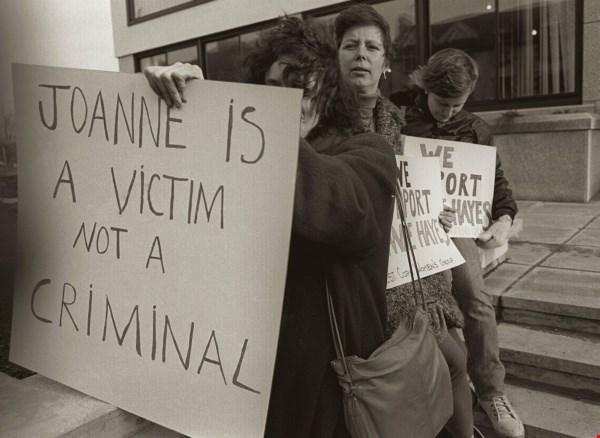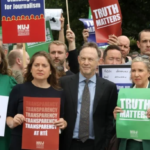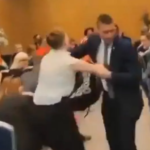The decision of the Gardai to review of the Kerry Babies case is welcome news. But it is also an opportunity to remember the horrific attitudes to unwanted pregnancies that were perpetrated by the very forces that are still fighting against a woman’s right to choose today.
In 1984, a new born baby was found dead near Caherciveen in County Kerry. The baby boy had been stabbed to death.
The Gardai decided to investigate unmarried women in the area who might have had unwanted pregnancies. They arrived at the door of Joanne Hayes whom, it was believed, was in a relationship with a married man who had fathered her daughter.
There were also reports that she had been pregnant recently.
Joanne Hayes acknowledged that she given birth to baby on her farm, had panicked and that the baby had died. In the same year, a young girl, Anne Lovett had died giving birth to a baby in Granard, County Longford.
Joanne’ s story was entirely plausible as women were being shamed for having pregnancies outside ‘normal’ marriage relationship.
However, the Garda did not believe her. A special squad of ‘heavy gang’ detectives were brought down from Dublin to subject the Hayes family to abuse.
A number of the family eventually ‘confessed’ to being involved with the disposal of the body into the sea near Dingle.
However blood tests then revealed that Joanne Hayes or the man she was in a relationship with could not have been the mother of the Caherciveen baby.
Faced with this exposure of false confession, the Gardai came up with a new theory.
They talked about ‘superfecundation’ where a woman could conceive twins by two men if she had sex with them both within 24 hours.
Despite further forensic evidence, they pressed ahead with charges.
Soon, however, the Director of Public Prosecution thought that it was making a mockery of the Irish state and eventually dropped the charges.
The Gardai, however, now faced a major problem: how could they explain how a number of people had falsely confessed to a murder that they were never involved in?
A Tribunal of Inquiry was set up to examine this issue. But it was stitch up of the Hayes family and a whitewash of the Gardai.
The Tribunal was headed up by a Justice Kevin Lynch who allowed the police to pursue a line of inquiry that came straight out medieval ceremony.
Joanne Hayes was asked about contraception, her sexual experiences, her menstrual cycle – as part of attempts to portray her as capable of anything. She broke down in tears numerous times and required medical attention while giving evidence.
Jeremiah Locke, the man she was in a relationship with, was also asked whether Hayes was a virgin when they first started seeing each other. He was asked “how many other boys or men had Joanne had intercourse with”.
The tribunal eventually concluded that the Hayes family wilfully and freely gave false statements to the Gardaí. It also stated that they perjured themselves when talking about Garda ill-treatment.
Judge Kevin Lynch said that it was Joanne’s own “guilty conscience” that led her to tell Gardaí about the Cahirciveen baby.
He found that the “most wronged woman” in the matter was Mary Locke, the wife of Jeremiah Locke, the man who had fathered Joanne’s babies. “Why no flowers for Mrs Locke?” he asked.
“Why no cards or Mass cards. Why no public assemblies to support her in her embarrassment and agony? Is it because she married Jeremiah Locke and thus got in the way of the foolish hopes and ambitions of Joanne Hayes?”
Lynch was eventually promoted to the Supreme Court.
But there was one glaring positive light in the whole horrific case. The people of Abbeydorney turned up at the Tribunal with placards ‘Abbeydorney supports Joanne’. They walked up and down outside the tribunal for two hours in silence.
In its own way, it showed that the basic decency of ordinary people beat the prejudices and bigotry of official Ireland.
And when it comes to a referendum on Repeal, we can do the same again












